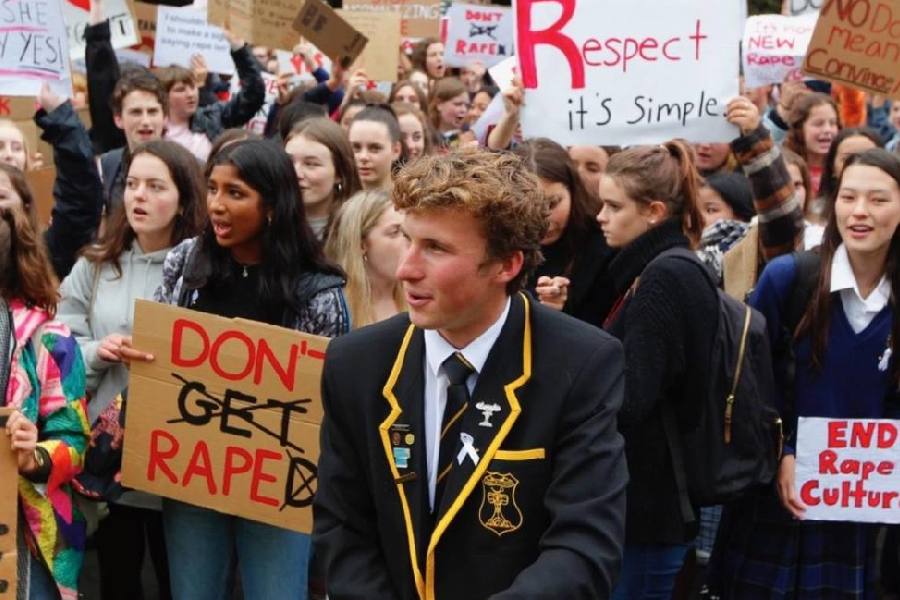Book: DISGRACE: GLOBAL REFLECTIONS ON SEXUAL VIOLENCE
Author: Joanna Bourke
Published by: Speaking Tiger
Price: Rs 599
“… the rights of women rest on shaky grounds. They can be ‘taken away’ as well as ‘given’.”
In the Preface to the Indian edition of her book, Disgrace, Joanna Bourke pointedly reminds us of this truth, citing the release from prison of 11 men convicted to life imprisonment for gang-raping Bilkis Bano. This reference is relevant because it lays bare a crucial tenet of Disgrace: the struggle to achieve a world free of sexual violence is constant.
Bourke is a polished narrator. She introduces ideas and problematises them, examining issues from multiple angles. This pushes readers away from subconsciously internalising biases and complacency. Commendably, Bourke does not hesitate to talk about the debates and the dilemmas surrounding the more contentious zones of sexual violence: rape against men, perpetrators as victims, complicity of the medical fraternity, female perpetrators, vigilantism, rape trauma syndrome, sexual violence within religious groups and so on.
Sexual violence in the global context is not about the vulnerabilities of particular groups in isolation. Bourke sums up this inference brilliantly when she writes, “… attention must be paid not simply to sex discrimination or racial prejudices, but to the compounding effects of race, sex, gender, class, caste, religion, (dis)ability, age, generation and so on.” An intersectional mode of understanding sexual violence is not only proposed but also practised in the book.
Bourke’s concluding proposition is 'transversalism', which emphasises the need for all progressive groups to band together and work towards a shared goal (a rape-free world) while being rooted in their self-identities. These are to be “uneasy coalitions, not mergers”, given that each group has its own complex conditions, contexts and histories. Bourke also highlights the need for public and personal resistance to sexual violence in one’s local context, the cumulative effect of which, she hopes, will be a world devoid of rape.
Disgrace is a call for action. Bourke acknowledges that every step of the way will be fraught with obstacles. It is difficult to disregard the call.










